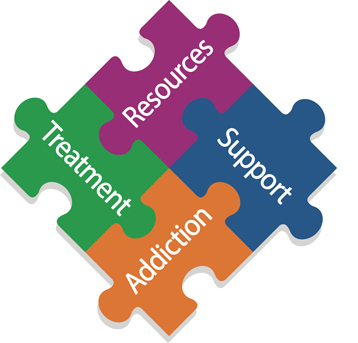A personalized alcohol addiction treatment plan can lead to long-term recovery.
Wiki Article
Key Types of Addiction Treatment: Browsing Alcohol Dependency Recuperation Via Evidence-Based Practices
In the world of alcohol addiction recuperation, the assimilation of Cognitive-Behavioral Therapies (CBT) and Medication-Assisted Therapy (MAT) notes an essential stride towards efficiency and patient-centered care. When these evidence-based techniques are supplemented with holistic strategies, such as mindfulness and nutritional assistance, they form a durable framework for therapy.
Comprehending Cognitive-Behavioral Therapies in Alcoholism Recuperation
As alcoholism healing advances, cognitive-behavioral therapies (CBT) have become a cornerstone in reliable therapy methods. CBT operates on the principle that maladaptive actions, such as too much drinking, are driven by dysfunctional ideas and ideas. Treatment focuses on identifying these adverse patterns and mentor individuals just how to test and replace them with even more constructive reasoning. This therapy is not just concerning handling habits but also improving cognitive processes, which can lead to continual soberness. Sessions usually entail sensible abilities training, such as coping strategies for handling yearnings and tension management techniques. The versatile nature of CBT permits it to be tailored to the one-of-a-kind requirements of each person, enhancing its efficiency in the world of alcohol recovery.
The Function of Medication-Assisted Therapy in Handling Withdrawal and Desires
Medication-assisted therapy (MAT) plays an important function in the monitoring of withdrawal signs and desires in individuals recuperating from alcohol dependency. MAT entails using FDA-approved medicines such as naltrexone, disulfiram, and acamprosate, which aid reduce the physical and mental prompts to drink, promoting a smoother and much more convenient detoxification process. These medications operate by changing mind chemistry to reduce the rewarding effects of alcohol, support mood swings, and reduce physical reliance. This medicinal strategy, when incorporated with therapy and behavior treatments, boosts alcohol addiction treatment the opportunities of long-term recovery. Such combination sustains the retention in therapy programs and adds substantially to avoid relapse, marking floor covering as a cornerstone of reliable alcohol dependency therapy.
Incorporating Alternative Techniques With Typical Treatments for Comprehensive Treatment
While medication-assisted treatment supplies a fundamental technique to alcohol recuperation, incorporating all natural techniques with standard treatments offers a more comprehensive treatment design. By combining these diverse approaches, therapy programs can tailor interventions to individual requirements, advertising a more lasting healing. This integrated method underscores the relevance of a multifaceted approach in the reliable treatment of alcohol dependency.
Verdict
To conclude, efficient alcohol dependency healing leverages a mix of evidence-based practices. Cognitive-Behavioral Treatments reframe negative reasoning, while Medication-Assisted Treatment deals with the physical obstacles of withdrawal and cravings. Integrating holistic methods, such as mindfulness and correct nourishment, with traditional treatments makes certain a comprehensive treatment approach. Customized to private requirements and supported with time, these strategies jointly enhance the likelihood of continual sobriety and total health in recouping people. telehealth addiction treatment.Report this wiki page